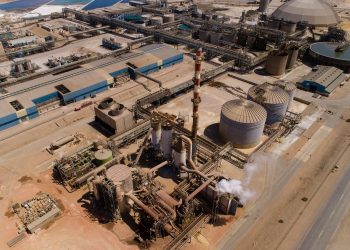
Brazil is open to collaborating with Namibia in research following recent oil and gas discoveries, as well as the development of Namibia’s Green Hydrogen projects, an official has revealed.
Brazil’s Ambassador to Namibia, Vivian Sanmartin, however said neither government has formally put this collaboration forward.
“Brazil is embarking on the Green Hydrogen strategy, we also have wind and solar power in abundance, and thus, I would like to see cooperation between our two countries, as I foresee high demand in the near future. It is not competition, but a corporation we can establish regarding research and market, in so forth. No agreement in place yet, but it is something I hope and wish to see realised. As authorities let’s reach out and talk to each other,” said Sanmartin.
Regarding gas and oil, Sanmartin said Brazil and Namibia share the same environmental models of which oil comes from the sea, which opens other areas of cooperation.
“There is a huge plethora of sources that can be advanced to Namibia, all kinds of equipment and services consulting, tapping from our experiences as a leader in this industry, with deepsea drilling skills and knowhow,” she added.
Namibia recently rolled out several Green Hydrogen Projects in the //Kharas and Erongo Region, which if successful will not only position the Southern African country as a global player in the renewable sector but also make it energy self-sufficient. This is in addition to continuous oil discoveries in the Orange basin offshore with over 11 billion estimated barrels of oil.
Last week, the Bank of Namibia said the oil and gas sector yielded N$33.4 billion in foreign direct investment inflows between 2021 and 2023.
Meanwhile, it is reported that 93.1% of Brazil’s power generation mix in 2023 came from renewable sources, mainly hydro, solar PV and wind power.
In 2022, Brazil was the largest oil producer in Latin America and the 9th largest oil producer in the world, with the aim to promote international investments in oil and natural gas exploration in a bid to boost regional development and strengthen Brazil’s position as one of the largest oil producers globally.







